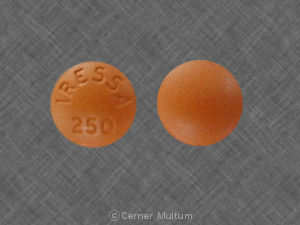Iressa Disease Interactions
There are 6 disease interactions with Iressa (gefitinib).
- Dermatologic toxicities
- GI disorders
- Ocular disorders
- Pulmonary toxicity
- Liver disease
- Renal dysfunction
EGFR inhibitors (applies to Iressa) dermatologic toxicities
Major Potential Hazard, Moderate plausibility. Applicable conditions: Dermatitis - Drug-Induced
Cutaneous reactions, in some cases severe, have been reported with the use of EGFR inhibitors. Monitor patients who develop dermatologic or soft tissue toxicities while receiving these agents for the development of inflammatory or infectious sequelae. It is recommended to withhold treatment, and appropriate measures should be instituted as appropriate or discontinue the use of these agents for dermatologic or soft tissue toxicity associated with severe or life-threatening inflammatory or infectious complications. Advise patients to wear sunscreen and hats and limit sun exposure while receiving therapy with these agents as exposure to sunlight can exacerbate dermatologic toxicities.
EGFR inhibitors (applies to Iressa) GI disorders
Major Potential Hazard, Moderate plausibility. Applicable conditions: Gastrointestinal Perforation, History - Peptic Ulcer, Diverticulitis
The use of some EGFR inhibitors may be associated with gastrointestinal perforation and fatal cases have been reported. Patients receiving concomitant anti-angiogenic agents, corticosteroids, NSAIDs, or taxane-based chemotherapy, or who have prior history of peptic ulceration or diverticular disease may be at increased risk of perforation. Permanently discontinue these agents in patients who develop gastrointestinal perforation.
EGFR inhibitors (applies to Iressa) ocular disorders
Major Potential Hazard, Moderate plausibility. Applicable conditions: Ocular Infection
Some epidermal growth factor receptor (EGFR) inhibitors should be administered cautiously in patients with ocular disorders such as primary keratitis, ulcerative keratitis, or conjunctivitis. It is recommended to interrupt or discontinue treatment with these agents if patients present with acute or worsening ocular disorders.
EGFR inhibitors (applies to Iressa) pulmonary toxicity
Major Potential Hazard, Moderate plausibility. Applicable conditions: Pulmonary Impairment, Fever
The use of certain EGFR inhibitors has been associated with pulmonary toxicity. Serious cases of interstitial lung disease (ILD), including fatal cases and interstitial pneumonitis or pulmonary fibrosis have been reported. Caution is recommended when using these agents in patients with a history of interstitial pneumonitis or pulmonary fibrosis or those patients presenting with acute onset of new or progressive unexplained pulmonary symptoms such as dyspnea, cough, and fever pending diagnostic evaluation. If ILD is confirmed, permanently discontinue these agents and institute appropriate measures.
Gefitinib (applies to Iressa) liver disease
Major Potential Hazard, Moderate plausibility.
Gefitinib undergoes extensive hepatic metabolism. Obtain periodic liver function testing and withhold gefitinib for up to 14 days in patients with worsening liver function (Grade 2 or higher for ALT and/or AST elevations) and resume treatment when the adverse reaction fully resolves or improves to NCI CTCAE Grade 1. Permanently discontinue therapy in patients with severe hepatic impairment. Monitor adverse reactions when gefitinib is administered to patients with moderate and severe hepatic impairment.
Gefitinib (applies to Iressa) renal dysfunction
Moderate Potential Hazard, Moderate plausibility.
Less than four percent (<4%) of gefitinib and its metabolites are excreted via the kidney. Population pharmacokinetic analyses suggest that creatinine clearance (above 20 mL/min) has no clinically meaningful effect on predicted steady state trough concentration of gefitinib. No clinical studies were conducted with gefitinib in patients with severe renal impairment.
Iressa drug interactions
There are 237 drug interactions with Iressa (gefitinib).
More about Iressa (gefitinib)
- Iressa consumer information
- Check interactions
- Compare alternatives
- Pricing & coupons
- Reviews (8)
- Drug images
- Side effects
- Dosage information
- During pregnancy
- Generic availability
- FDA approval history
- Drug class: EGFR inhibitors
- Breastfeeding
- En español
Related treatment guides
Drug Interaction Classification
| Highly clinically significant. Avoid combinations; the risk of the interaction outweighs the benefit. | |
| Moderately clinically significant. Usually avoid combinations; use it only under special circumstances. | |
| Minimally clinically significant. Minimize risk; assess risk and consider an alternative drug, take steps to circumvent the interaction risk and/or institute a monitoring plan. | |
| No interaction information available. |
Further information
Always consult your healthcare provider to ensure the information displayed on this page applies to your personal circumstances.


